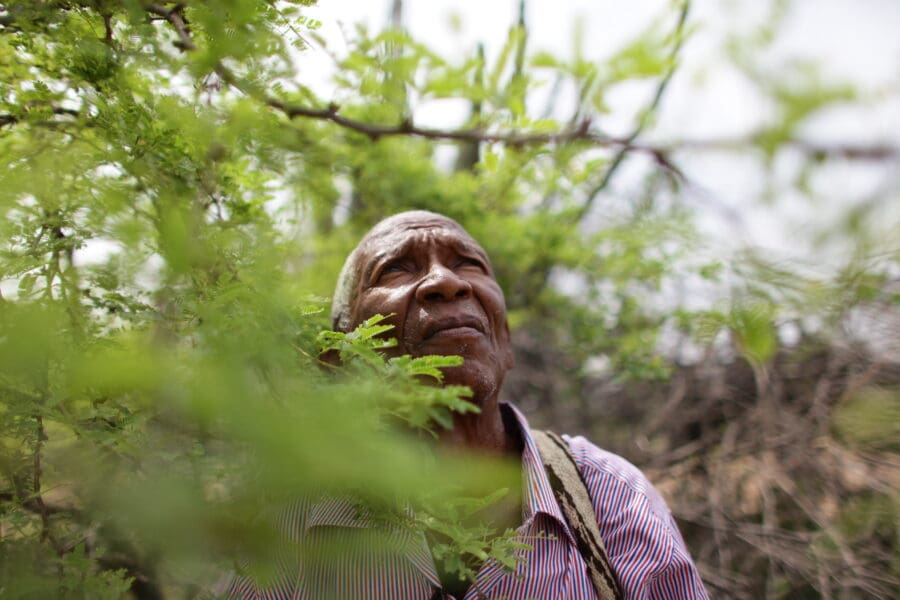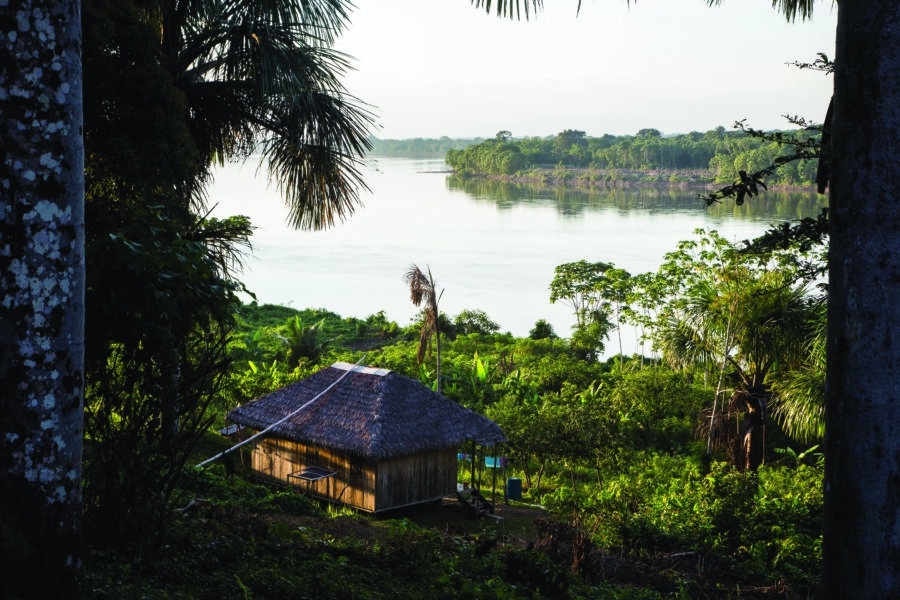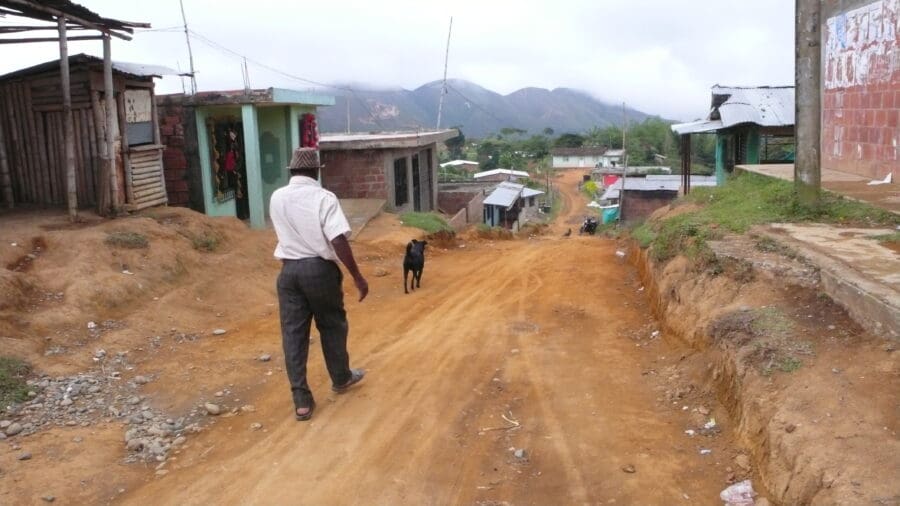In the early morning of March 2, 2023, protesters, and members of the local community guard, attacked a group of police officers guarding Los Pozos oil company, located in the department of Caquetá in southwestern Colombia. The confrontation, accompanied by bombs, left two dead and several people seriously injured.
The socio-environmental conflict in Los Pozos oil block, which has escalated since the beginning of the company’s activities in that territory in 2014,* could have been avoided if at least two factors had previously concurred:
- The adoption and application of social and environmental standards that framed the actions of Chinese companies in the interior of the country, and
- The correct and fair sanctioning by the Colombian National Environmental Licensing Authority (ANLA) in the past decade for the company’s non-compliance with its obligations.

The Chinese government’s guidelines for its companies
The Chinese government has tried to promote a series of social and environmental guidelines aimed at preventing and reducing environmental risks generated by Chinese multinationals. However, these guidelines were not considered by the Colombian government.
Indeed, the “Guidelines on Environmental Protection in Overseas Investment and Cooperation“, issued by the Ministry of Commerce and the Ministry of Environmental Protection of China, urges companies to comply with social responsibility in environmental protection and sustainable development.
The guidelines stress the importance of continuously monitoring the environmental impacts of companies’ activities. That is, to investigate operations in petroleum activities, groundwater pollution and environmental liabilities with due diligence, and to design crisis management plans.
Subsequently, in 2022, the same agencies promulgated the “Guidelines for Ecological Environmental Protection of Foreign Investment Cooperation and Construction Project”, which, in the opinion of specialists, have not made much progress beyond the creation of two documents in the span of a decade.
In other words, the environmental authorities are trying to reduce risks in petrochemical projects and prevent the construction of highways through habitats or natural reserve territories. Therefore, if China’s guidelines were stricter than those of the second country—in this case, Colombia—the guidelines promulgated by China should prevail.
From the Circular to Regulate Foreign Investment and Cooperation of Chinese Enterprises issued in 2018, it is possible to highlight numeral 3: Accountability System. Here it is stipulated that ongoing supervision by Chinese enterprises and competent authorities should be advanced to enable disputes to be managed, as applies in this case.
In addition, the responsibility would be greater on the part of state-owned enterprises, as they are considered “the backbone of foreign investment and cooperation.”
Complaints to deaf ears
Now, the scarce knowledge and deficient application of these guidelines, as well as the violation of environmental and community rights, led the Confederation of Indigenous Organizations of the Amazon Basin (COICA) to present in 2018 the report on the violation of human rights in the operations of Chinese companies in Amazonian countries, supported by a group of environmental and human rights organizations.
A similar exercise was advanced by the Collective on Chinese Finance and Investment, Human Rights and Environment (CICDHA), who together with the International Service for Human Rights (ISHR) and the International Federation for Human Rights (FIDH) presented the ‘Mid-term Report’ called Human Rights and Chinese Business Activities in Latin America, which analyzes the implementation by the Chinese government of recommendations regarding its international obligations in the field of activities of Chinese companies in that region.
An investigation carried out by a group of NGOs and academics, which included 26 cases in the mining, hydroelectric and oil sectors in Latin America, found that the projects analyzed affect strategic ecosystems and that there are patterns of human rights abuses and violations of the right to live in a healthy environment and the right to participation and consultation. Forced displacement of communities near the project areas was also reported.
The report concludes that the Chinese government has failed to comply with any of the six recommendations it voluntarily accepted in the 2018 Universal Periodic Review (UPR). This is worrying, considering the preponderant role that this country has acquired in the last decade and the high number of projects it is advancing in Latin America, especially in countries such as Colombia.
In this regard, in a preliminary document of the Asociación Ambiente y Sociedad, David Cruz, sociologist and researcher at the organization in Financing and Socio-environmental Rights, points out the importance of China in Colombia, a country that is the second largest trading partner and occupies a preponderant place in the sectors of hydrocarbons, infrastructure, energy and agriculture.
However, all these complaints and investigations have been ineffective because there are no channels by which to address these claims. Added to this is the fact that the multinationals do not provide updated data and some of the project managers even claim they cannot publish information.
Failing to comply with Colombian laws
Karla Díaz, also a researcher at Asociación Ambiente y Sociedad, in an article published in 2019 emphasizes the challenges of assuming new commitments in the face of the increase in hydrocarbon supply in the Amazon foothills, particularly due to Emerald Energy’s non-compliance with the obligations contained in the environmental license in Los Pozos.
It is difficult to understand the role of the Colombian environmental authority in the Ombú case, in a process that should involve clear and forceful decisions so that the communities can have certainty, regardless of whether the company comply with their claims.
From the summary of actions that occurred until 2019, we found a lack of data on mitigations or compensation for water use, errors in the coordinates that would lead to activities outside the areas, and lack of reuse of industrial waters.
In addition, there were significant impacts on the fauna and flora of the site, for which another sanctioning process was ordered to be initiated.
In summary, there is non-compliance with the Environmental Management Plan (PMA), while the Environmental Compliance Reports (ICA) do not provide sufficient information on the status of the resources involved in the Chinese companies’ activities.
This series of sometimes contradictory procedures sends unclear messages to the communities affected by the resource exploitation and creates tortuous paths toward vindicating their rights.
Before the tragic outcome on March 2, there was interest expressed by community members, authorities, and councilors to know the fulfillment of the contractual obligations acquired by the company in depth, but these requests received an incomplete and inconclusive response from the multinational.
It is therefore disconcerting that while fines are being imposed, there are still no solutions to the causes of the sanction, and then the company is proceeding to expand its operations throughout the area to advance in exploration.** In this way, the Chinese government’s non-compliance with environmental guidelines moves it away from its hopeful aspirations of environmental protection.
I regret the condemnable outcome that occurred in San Vicente del Caguán, Los Pozos sector, which left two dead: one from the Police and the other from the local communities, in one of those tragic draws of the game of death that never ends. To their families, I offer all my respect.
* The Ombú project covers almost 16,000 hectares in the Los Pozos de San Vicente del Caguán district and has been in operation since April 28, 2011. In 2013 the Chinese multinational paused operations due to a lack of productivity and increased costs, and in 2014 it reopened again.
** On March 7 of this year, the oil company Emerald Energy filed a formal letter with the Colombian National Hydrocarbons Agency (ANH) requesting the suspension of operations in the Ombú block. The government, the community, and the company are studying the terms to define the continuity of operations.








